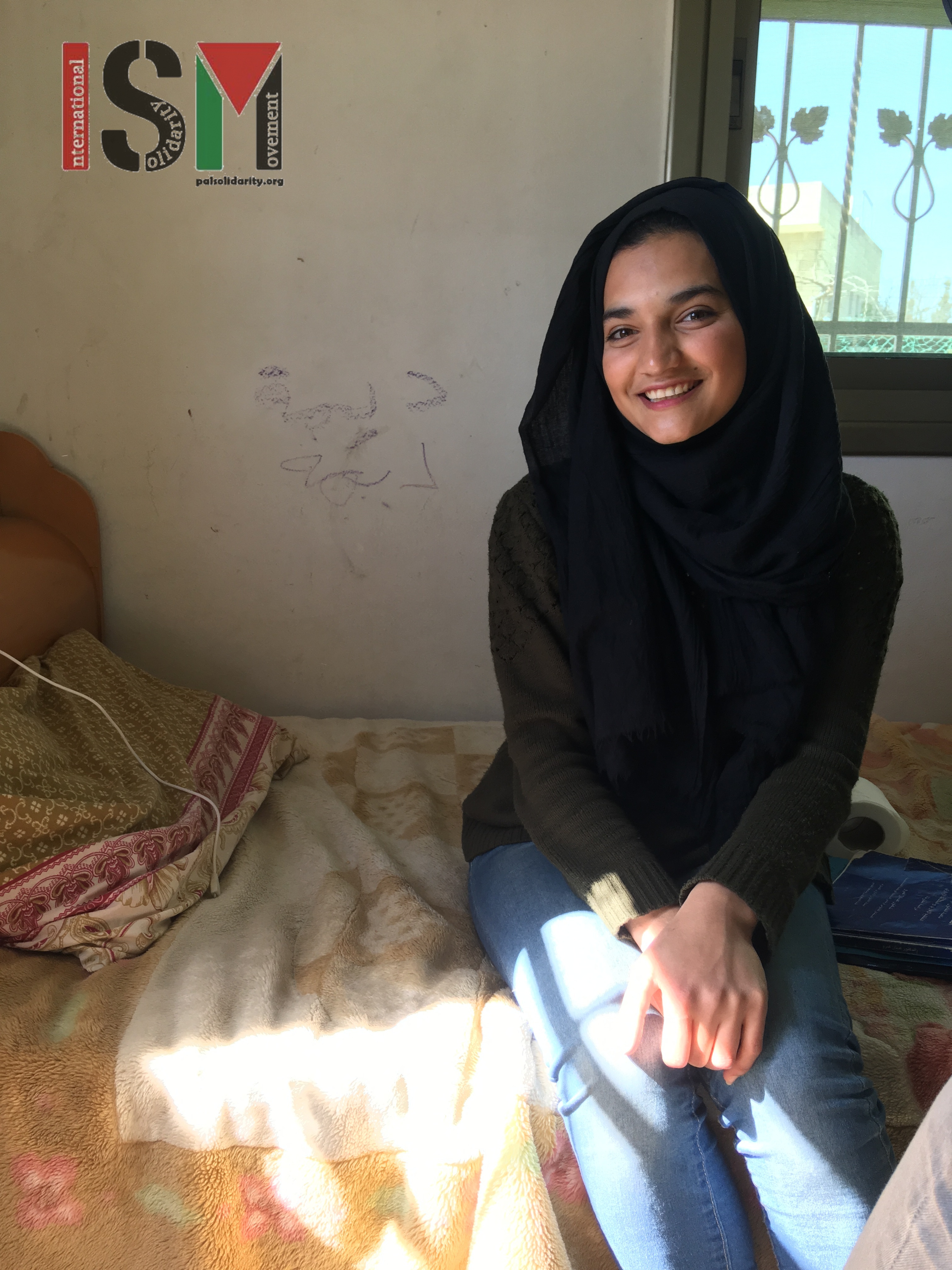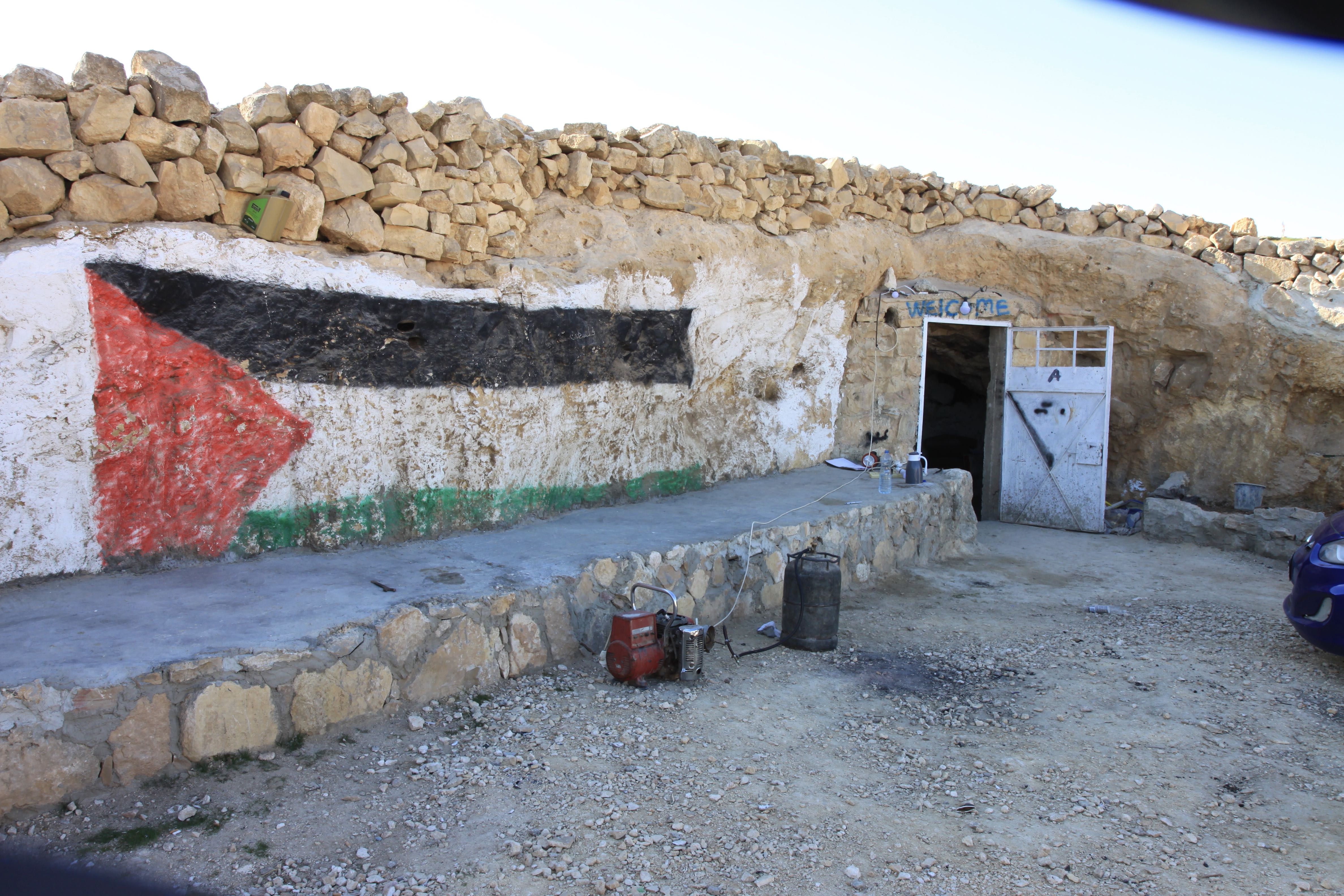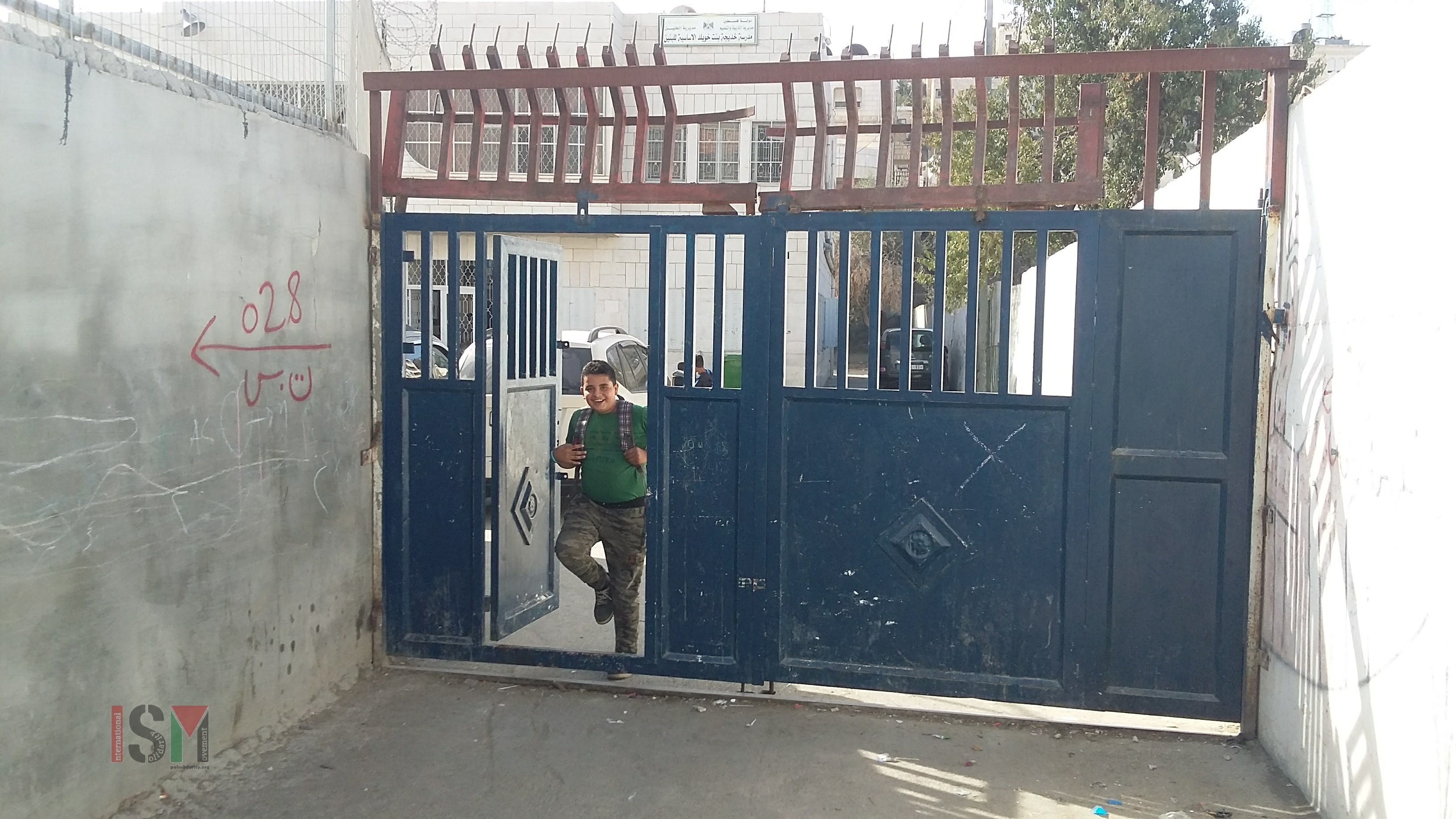Category: Journals
-
A recollection of Dima al-Wawi’s imprisonment and a remembrance of Hamza Zamara
18th March 2018 | International Solidarity Movement, al Khalil team | Occupied Palestine Two years ago Dima al-Wawi woke up for school feeling sick. Her throat hurt and her lymph nodes were swollen. Her parents were already out of the house, on their land that is split in two by the illegal settlement Karmi Zur…
-
The Battle Ground of the South Hebron Hills
28th December 2017 | International Solidarity Movement, al-Khalil team | al-Khalil, Hebron, occupied Palestine The South Hebron Hills is one of the battle zones against the ethnic cleansing of Palestine. This area stretches along the southern border of the West Bank. The villages of At-Tuwani, At-Tuba, Mufaqarah, and Sarura are located in the South Hebron…
-
Outside the school, inside al Khalil
19th December 2017 | International Solidarity Movement, al-Khalil team | al-Khalil, occupied Palestine Most of us are plenty used to absent minded scrolling our Facebook feeds. After all you can find just about anything you want and not have to read anything in particular. However, you can also come across a post saying that two…



